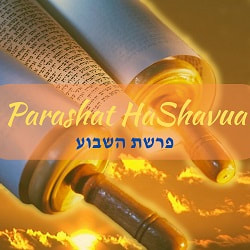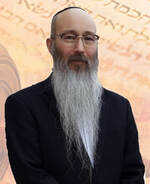THE ISRAEL FOUNDATION
|
By: HaRav Menashe Sasson Reporting from Jerusalem, Israel Published in the U.S.A. On September 1, 2022, the Israel Supreme Court upheld the conviction of Amiram Ben Uliel, who was found guilty of the 2015 arson murders of a family of three. On appeal, Ben Uliel challenged the admissibility of his confessions, arguing that the confessions should have been excluded from evidence because they were obtained by police through the use of torture, rather than given voluntarily. Accordingly, the only issue that was properly before the court on appeal was whether the trial court erred by admitting Ben Uliel’s confessions into evidence. In its opinion affirming Ben Uliel’s convictions, the Israel Supreme Court acknowledged that Ben Uliel remained silent during the first 17 days of his in-custody interrogations and that he “confessed” only after police employed “special [interrogation] measures.” Failing to address the issue of whether evidence illegally obtained by police should be admissible at trial to prove a defendant’s guilt, the Israel Supreme Court wrote, “There is no doubt that it was he [Ben Uliel] who committed this terrible deed.” Based on the Court’s statement, Israeli police might now reasonably conclude that confessions which are obtained through an illegal use of force are lawful, as long as the crime is sufficiently “terrible” and there is “no doubt” as to a defendant’s guilt. How the police are to know, during a pre-trial investigation, that there is “no doubt” as to potential defendant’s guilt is a question the Court apparently left for another day. The concern that the Court’s opinion might encourage future police misconduct was not lost on at least one member of the Court. Judge Yosef Elron wrote, “I will admit that I remain troubled to a certain extent about the future, given the message sent to the investigative bodies in view of this outcome.” The “Exclusionary Rule” is a rule of evidence which provides that illegally obtained evidence of a crime is generally inadmissible at trial to prove a defendant’s guilt. Judge Benjamin Cardozo, a respected American jurist from the early 1900s, criticized the rule, stating that application of the rule allows, “[t]he criminal . . . to go free because the constable has blundered.” Judge Cardozo, in his criticism of the rule, was exactly correct. Applying the Exclusionary Rule might sometimes – but not always – allow the guilty to go free. It should never be forgotten, however, that government, vis-à-vis the individual, is the holder of extraordinary power and that civil liberties can be protected only through a meaningful restraint on the exercise of that power. Thus, although application of the Exclusionary Rule might, on occasion, allow the guilty to go free, the rule promotes the greater good by incentivizing government to refrain from committing the “terrible deed” of exercising its vast powers in an unlawful manner, powers which far exceed the capability of any criminal defendant to commit a “terrible deed.” The Exclusionary Rule is commonly understood to have been adopted in American jurisprudence by the 1961 U.S. Supreme Court case of Mapp v. Ohio, 367 U.S. 643 (1961). However, general application of the rule in U.S. courts can be traced to at least 1886. Zoo v. United States, 116 U.S. 616 (1886) (applying the rule to the compelled production of business papers). In the context of coerced confessions, use of the rule in U.S. courts can be traced to at least 1897. Bram v. United States, 168 U.S. 532 (1897). The history of the rule, however, goes back much further in time and place, to England, which of course is the source of America’s judicial system and early precedent. Roe v. Harvey, 98 Eng. Rep. 302 (K.B. 1769). Over the course of the centuries, the contours and breadth of the Exclusionary Rule have often been the subject of judicial dispute. Nevertheless, British and American courts have consistently held that, at a minimum, the rule should always be construed broadly enough to encompass coerced confessions. Israel, of course, is not England, nor is it the United States. Nevertheless, Israel considers itself to be a “democracy” and, consistent with this characterization, has incorporated a large body of both British and American jurisprudence into its legal system. Indeed, Israel’s parliamentary structure of government is modeled after the British “Westminster” system and the substance of many of Israel’s laws and legal procedures are derived from British and American sources. Thus, it would be quite inconsistent for Israel to repudiate a legal principle which is as foundational and settled in the jurisprudence of Western democracies as is the Exclusionary Rule, especially as applied to coerced confessions. In the opinion affirming his conviction, the Israel Supreme Court also said that Ben Uliel’s “actions contradict and conflict with all moral values and Jewish culture.” If the Torah did not exist, G-d forbid, there could be no Jews and, by extension, no Jewish nation, no Jewish state, and, of course, no morals or Jewish culture. Thus, it is not possible to analyze “moral values and Jewish culture,” let alone Jewish law, without reference to Torah. Jewish law, that is, real Jewish law, as set forth in Halakha, provides that confessions are inadmissible – under all circumstances – to prove a defendant’s guilt. Masekhet Sanhedrin 9b. The rule which makes confessions inadmissible was likely derived, by inference, from the fact that nowhere in Tanakh or Talmud is there any provision for the interrogation of arrestees or criminal defendants. It follows, of course, that if all confessions are inadmissible, there is little concern that government will torture defendants in an effort to obtain confessions. The Jewish rule – the Halakha – which excludes all confessions, is consistent with other, related aspects of Jewish criminal procedure, as both the former and the latter are weighted in favor of the defendant. In other words, the effect of the Exclusionary Rule, which Judge Cardozo criticized as allowing “[t]he criminal . . . to go free because the constable has blundered,” is a concept which the Torah fully supports and endorses. The issue of whether coerced confessions should be admissible in criminal proceedings vividly illustrates the age-old dichotomy between the collective security of society and the personal liberties of individuals. Where personal liberties are weighted too heavily, unregulated societal anarchy will follow. Where the security of society is weighted too heavily, totalitarianism, a police state, will follow. As history has shown, time and again, police states are much more common than are unregulated societal anarchies. The State of Israel is less than 100 years old. It was founded by socialists, based on socialist principles. Socialist doctrine, in turn, rejects anything and everything, including HaShem and His Torah, which occupy a position which is more authoritative than the State. In order to acquire and maintain power, socialist regimes the world over have relied – and continue to rely – on the empty and false promise of collective security. The so-called “bargain” goes like this: “The government will provide security, if individuals will voluntarily relinquish their individual civil liberties.” A judicial system which allows the use of coerced confessions is a judicial system which not only condones the use of such confessions, but is also a system which encourages government agents to obtain such confessions in the first place. The well-earned name that history has assigned to such regimes, that is, regimes where the ends justify the means, is none other than: “Police State.” Two important steps for preventing the creation of – or dismantling – a police state are: (1) the adoption and use of an Exclusionary Rule and (2) the creation and implementation of a meaningful system of civil damage awards that hold both government agencies and individual government agents financially responsible for the commission of knowing and willful violations of civil rights. Unfortunately, the 2007 assessment of Israel, made by the esteemed American jurist Richard A. Poser, is as valid today as it was then: “Israel is an immature democracy, poorly governed; its political class is mediocre and corrupt; it floats precariously in a lethally hostile Muslim sea; and it really could use a constitution.” Richard A. Posner, “Enlightened Despot (reviewing Aharon Barak, The Judge in a Democracy (2006)),” New Republic, April 2007, at p.53. This article was published on Arutz Sheva on 22 Kislev 5783 / December 16, 2022 Copyright © The Israel Foundation. All Rights Reserved.
0 Comments
Your comment will be posted after it is approved.
Leave a Reply. |




